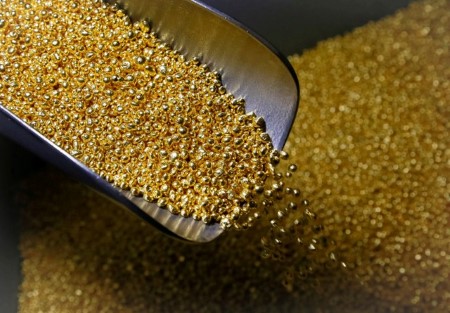




January Economic Update: Growth slows, prices rise
 DOWNLOAD
DOWNLOAD

Inflation Update: Up, up, and away?
 DOWNLOAD
DOWNLOAD

Quarterly Economic Growth Release: Growth takes on a slower pace
 DOWNLOAD
DOWNLOAD


Gold slips as dollar firms on rate-hike prospects

Oct 11 (Reuters) – Gold prices inched lower on Tuesday, pressured by gains in the US dollar on prospects of more steep rate hikes, while caution prevailed ahead of key inflation data due later in the week.
Spot gold was down 0.1% at USD 1,665.89 per ounce, as of 0612 GMT, after earlier touching its lowest since Oct. 3. US gold futures dipped 0.1% to USD 1,672.60.
Benchmark US 10-year Treasury yields were just shy of 4%, while the dollar index rose 0.3%, making gold more expensive for buyers holding other currencies.
“It’s a technical level for bond yields and they’re dragging the dollar higher and weighing on gold prices,” said City Index analyst Matt Simpson, adding signals of a global recession from the International Monetary Fund were also driving safe-haven flows into the dollar instead.
“Gold is now stuck in the USD 1,658 to USD 1,676 range,” said Simpson.
After stronger-than-expected US labour data, focus is now on Thursday’s inflation reading, which is expected to remain stubbornly high and reinforce the Federal Reserve’s hawkish rhetoric.
While gold is considered a hedge against inflation and economic uncertainties, rising rates reduce the non-yielding metal’s appeal.
If the US economy, which is still quite resilient, starts softening, gold could see interest, but there have to be definitive signs that the Fed is willing to take its foot off the rate-hike pedal and inflation tapering, said Stephen Innes, managing partner at SPI Asset Management.
Spot silver fell 1.3% to USD 19.39 per ounce and platinum shed 0.3% to USD 896.08. Palladium, meanwhile, rose 0.3% to USD 2,178.26.
Citi analysts said in a note that they were relatively bullish on palladium, citing resilient demand on increasing automotive chip supply availability, automotive supply chain re-stocking and rising Russia supply-shock risks.
Prices of palladium, used in emission-controlling devices in cars along with platinum, have risen about 15% so far this year.
(Reporting by Eileen Soreng, additional reporting by Arpan Varghese in Bengaluru; Editing by Sherry Jacob-Phillips and Subhranshu Sahu)
This article originally appeared on reuters.com





 By Reuters
By Reuters